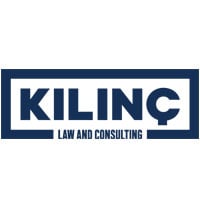

Legal manager | Yilport Holding



Fatih Temur
Legal manager | Yilport Holding
What has been the number one challenge that has impacted you over the past year?
2022 was one of the fastest business growth years in the Yildrim group. As the legal team, we have been challenged by simultaneously managing several M&A processes, as well as by leading various operational legal matters. Generally speaking, the business world required a fast recovery after the pandemic, and this fast recovery required even faster legal solutions and structures to the issues which was the number one challenge for 2022. I have faced various operational matters from different countries in which Yilport operates from Ecuador to Norway.
I believe that the post-pandemic normalisation phase will continue in 2023 as the effects of the pandemic are decreasing and in parallel, the legal challenge will continue.
In your opinion, what areas should in-house lawyers focus on over the next few years to prove value to their organisations in Türkiye?
The use of artificial intelligence in the legal area causes changing the perception towards lawyers day by day and this is especially important for in-house legal counsel. We see that artificial intelligence applications are giving good answers to legal questions and even they draft certain types of basic agreements. We can expect better outcomes from artificial intelligence in the next few years. This fact means that “out-of-the-box thinking” would be even more crucial in the legal area. We, as in-house counsel, should cover more legal areas not by competing with artificial intelligence but by benefiting from it.
On the other hand, increasing in-house problem-solving capabilities would be another focal point to prove value to the organisations. In this regard, “intelligent outsourcing” will be the key element for in-house lawyers over the next few years. Intelligent outsourcing means knowing when your company would need law firms and benefit from their experiences. In today’s world, it is impossible to be experienced in all legal areas, and “knowing what you do not know enough” would be crucial for your company.
Could you share an example of a time when you came up with an innovation that improved how your legal team works and did not come at a large expense?
Generally speaking, lawyers tend to litigate matters and start legal procedures for any claims. However, I believe knowing when you should start a litigation process or settle a claim can help the companies more in terms of legal expenses and legal strategy. We should always take into account the time that will be spent on the litigation (by both the company management and the lawyers), the legal advisory costs, and the overall company position for each litigation.
Last year, we had a dispute in a foreign country against a governmental authority that we believed were right. Before initiating a lawsuit about this matter, I made a pros-cons analysis by taking into consideration the governmental authority’s position on the matter, potential advisory costs, company strategy, and potential timeline of the lawsuit, and finally decided that the lawsuit would bring limited benefit and cost more. I recommended not pursuing this matter to our management since, even if we won the case in the end, not pursuing it at all would strategically bring a less negative outcome. At the end of the day, such an approach saved time and money for the company. Therefore, I believe that an in-house counsel can make a difference by considering all facts of the claim and disputes and comparing potential outcomes and the legal costs to obtain such outcomes.
Chief legal officer, board member | Neu Frame & Neu Solar
Senior lawyer, M&A and transactional affairs | Yilport Holdings